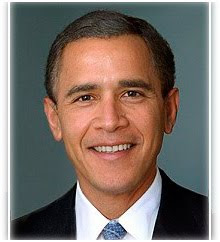ABC News reported today that several indicators are pointing to an economic recovery. The Dow Jones Industrial Average rose to surpass 9,000 last week (to 9,069.29). This was the first time that it exceeded that level. And all the large stock indexes rose by more than two percent, TIm Paradis and Sara Lepro in "The Minneapolis Star-Tribune" reported Thursday. The NASDAQ had its most impressive rally since 1992: a 12th straight advance, i.e., the composite index rising by 47.22, or 2.5 percent.
Home sales (of previously lived-in homes) were at 4.89 milion in June, compared with the anticipated 4.84 milion.
INVESTMENT MANAGER BILL MILLER BULLISH
Legg Mason trust fund manager Bill Miller, who is renowned for "beating the S&P 500" says that the worst is over.
Jeff Kearns and Sree Vidya Bhaktavatsalam report in "The Washington Post" this weekend that Miller said of the stock market that "the worst has passed."
"Bull markets typically begin when the following four conditions are present: the economy is bottoming, profits are bottoming, the Fed is stimulating and valuations are low. That's where we are now."
Miller, famed for beating the Standard & Poor's 500-stock index for a record 15 years through 2005, trailed the U.S. benchmark for the past three, partly because of investments in home builders, banks and mortgage companies. Those bets caused a record 55 percent loss in 2008. Legg Mason Value Trust has returned 19.8 percent this year, ahead of the index by 12.6 percentage points when dividends are included.
Banks and other financial institutions have rallied the most among 10 industries since the S&P 500 tumbled to a 12-year low March 9, surging 96 percent. Technology shares had the second-best gain, climbing 55 percent.
SEVERAL PROBLEMS REMAIN
There are several problems, enduring, however. Consumer confidence remains low.
Well, no wonder. Psychology is at play for lots of this. Consumers don't want to spend if they have reason to fear that their jobs are not secure.
Credit cards as a boon to economic vitality
Let's face it: credit cards are the crack of consumer spending. They provide(d) an illusory high of easy, immediate satisfying of buying impulses. And more seriously, they provided an important trigger that stimulated spending. It is no wonder that with the two factors of tighter credit and fears of job stability or security there is a decrease in consumer confidence. This made it particularly easy to splurge frequently or on big ticket items like plasma televisions.
Unemployment still troubling
Unemployment presently stands at 9.5 percent, the highest level since the first administration of President Ronald Reagan in the early 1980s.
RIGHT-WING, GOP, OTHER MEDIA --ESPECIALLY FOX-- NOT GIVING CREDIT WHERE DUE
This recovery, or at least positive turn-around on a number of fronts, is here after six months of the Barack Obama administration. The Republicans, the right in general, and the media need to be honest and give the administration credit where it is due.
These delusional pontificators were booming about how Obama was a socialist, a Marxist, a Stalinist. Just listen to Sean Hannity, Rush Limbaugh or Monica Crowley. Yet, where are they now, with the multiple positive signs suggesting a turn towards a recovery. They have now shifted their demagogic rhetorical flourish to Obama on health care policy, bandying about these -ism labels on Obama's public option.
Is it any wonder that one of the latest "Washington Post" polls has the public trusting President Obama over the Republicans on health care by a 54 to 34 margin.
Look in the news search engines and listen to the Republicans on the Sunday morning talk shows you cannot find Republicans acknowledging the loud hints of a recovery, let alone credit Obama with the recovery.
Just two weeks ago Obama was asking for more time for the stimulus to kick in. It seems as though this is happening.
**
As to whether this is a jobless recovery, that remains an open question. I believe that much of this question lies in the de-industrializing spiral that economic policy-makers have placed us in.

















